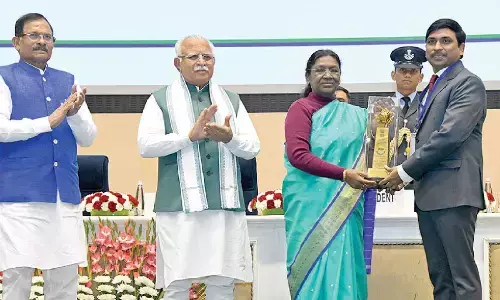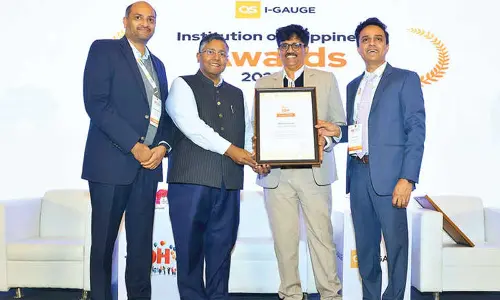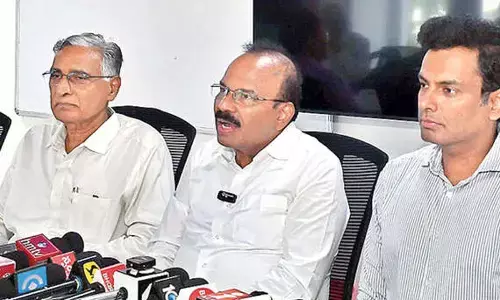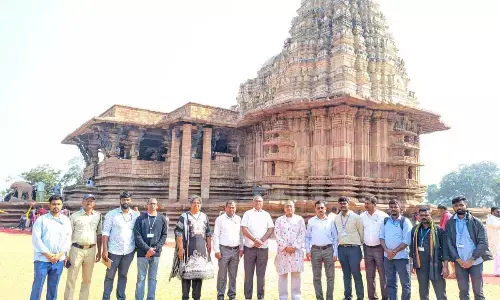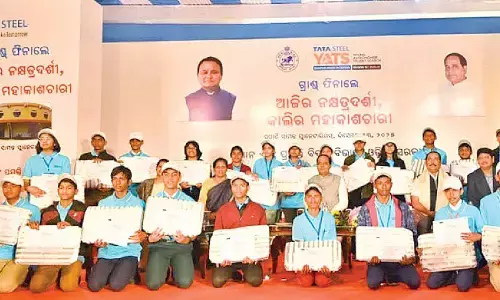EPF enrolment, Income tax data cannot measure job creation: Experts

Amid the controversy over the withholding of a report on the countrys unemployment situation, the government has cited data from provident fund rcords, Income Tax filings and the National Pension System NPS, besides a possible upswing in the informal sector to show generation of crores of new jobs
New Delhi, Feb 10: Amid the controversy over the withholding of a report on the country's unemployment situation, the government has cited data from provident fund rcords, Income Tax filings and the National Pension System (NPS), besides a possible upswing in the informal sector to show generation of crores of new jobs.
However, this does not mean there is an increase in the jobs, experts say.
During his reply on the motion of thanks on the President's address in the Lok Sabha on Thursday, Prime Minister Narendra Modi said new jobs were created in the unorganised sector, which accounts for 80-85 per cent employment, citing an increase in the sale of commercial vehicles, infrastructure building and housing activities.
He said about 1.8 crore people had enrolled in the Employees' Provident Fund (EPF) in the past 15 months, and 64 per cent of them, who were below the age of 28 were first-time employees.
Modi also cited the data showing increase in the registration of employees under the National Pension Scheme (NPS) from 65 lakh in March 2014 to 1.2 crore till October 2018.
Considering the EPF enrolments as a reflector of job creation is not correct as it can be formalisation of informal jobs, said Mahesh Vyas, Chief Executive Officer of Centre for Monitoring Indian Economy (CMIE), a think tank.
"When a person enrols for the EPF, it does not necessarily mean that the person has got a job. It is quite likely that you have enrolled for the the EPF for the first time though you had a job for a long time," he said.
"The law requires an employer with 20 people or more to register with the EPFO. If a firm has got 19 employees till yesterday and today 20th person joins in, then all 20 get enrolled for the first time. So it looks like employment has gone up by 20 when actually it is one."
Another expert, who did not wish to be named, said there cannot be a correlation between EPF enrolment and job creation "since it has so many moving parts and variables, so one could interpret it differently".
Modi also had said that new 6.35 lakh new non-corporate tax payers such as doctors must have provided jobs in past four years. The expert called it "incomprehensible" in the absence of the source of the data.
In his speech, the Prime Minister said he expected over 1.25 crore people have got jobs in the transport sector with the sale of 36 lakh commercial vehicles and 27 lakh auto-rickshaws.
He also cited setting up of two lakh service call centres, infrastructure building, hotel constructions and housing activities for the creation of employment in the country.
Vyas said if a farmer takes up a labourer' job or moves to driving a truck, it cannot be considered a new job.
According to the CMIE statistics, India's unemployment rate shot up to 7.4 per cent in December, 2018 and the number of unemployed increased by a substantial 11 million - the highest in 15 months.
Modi had taken a dig at the past governments for failing to establish standard system to tally employment and said only 7-8 sectors were taken into account to arrive at the employment rate when, in reality, jobs were created in 100-odd sectors.
Vyas said Modi was possibly referring to enterprise survey conducted by the Labour Ministry, which is one of the ways to estimate employment.
"That is not the best way to estimate employment and unemployment in country like India. But what the Prime Minister did not mention was that India also conducted a large house-hold survey. It is the most appropriate way of computing it and will capture all sectors. He is partially right but selective in the kind of survey done," he said.
"The traditional way, which is a good way of calculating employment and unemployment, is the NSSO household survey," he added.
The National Sample Survey Organisation (NSSO) report, which the government has withheld, said the unemployment rate was 6.1 per cent in 2017-18, post-demonetisation and was at its highest level since 1972-73 - the period since when the jobs data is comparable.








